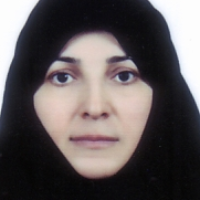Academic Success or academic failure: a qualitative study
Author(s):
Article Type:
Research/Original Article (دارای رتبه معتبر)
Abstract:
The purpose of this study was to identify academic success and failure factors based on the lived experiences of successful students and students who were placed on academic probation. This study is a qualitative research using phenomenology method and purposive sampling. Twelve semi-structured interviews were carried out with 10 female and 2 male students who were placed on academic probation, and eight semi-structured interviews were carried out with 6 female and 2 male of students with an grade point average above 17. The interviews were recorded and transcribed and then, the data were analysed using the Colizzii analysis method. Regarding the academic success antecedent, 2 main areas of individual factors and social factors and the academic probation antecedent including individual, family,peer and educational factors were extracted from the analysis of data. Similarly, in comparing groups, 10 subthemes, but with different orientations, were obtained from analyses.These subtems are Previous academic performance, goals, interests, skills study, effort, hope, location control, compliance with the conditions, motivational impacts of friends and family circumstances, that can be considered by counselors in intervention programs.
Keywords:
Language:
Persian
Published:
Quarterly Journal of Research in Educational Systems, Volume:13 Issue: 45, 2019
Pages:
75 to 91
https://magiran.com/p2025462
مقالات دیگری از این نویسنده (گان)
-
The Mediating Role of Fear of Negative Evaluation in the Relationship between Self-Compassion and Loneliness in Adolescents
*, Fatemeh Mofatteh
Rooyesh-e-Ravanshenasi, -
Analyzing the Challenges and Components of Remarriage Instability in Couple Therapy Applicants: Grounded Theory Research
Habibeh Bahrami Nejad, *, Kiomars Farahbakhsh, Mohammad Asgari
Journal of Applied Psychology, -
A qualitative study of the process of children's adaptation to divorce of parents
Zohre Salehbeigi *, Abolfazl Hatami Varzaneh, Kiimars Farahbakhsh
Quarterly of Counseling Culture and Psychotherapy,




